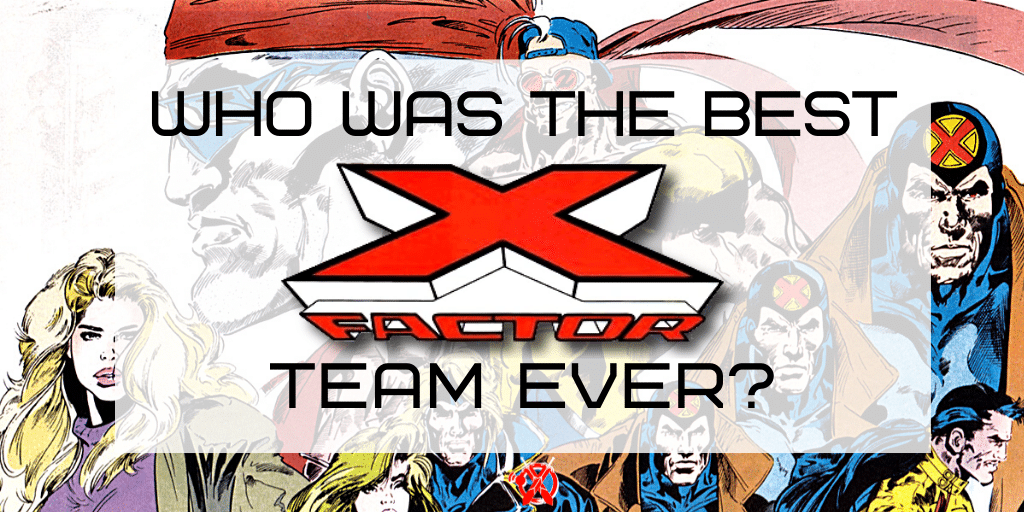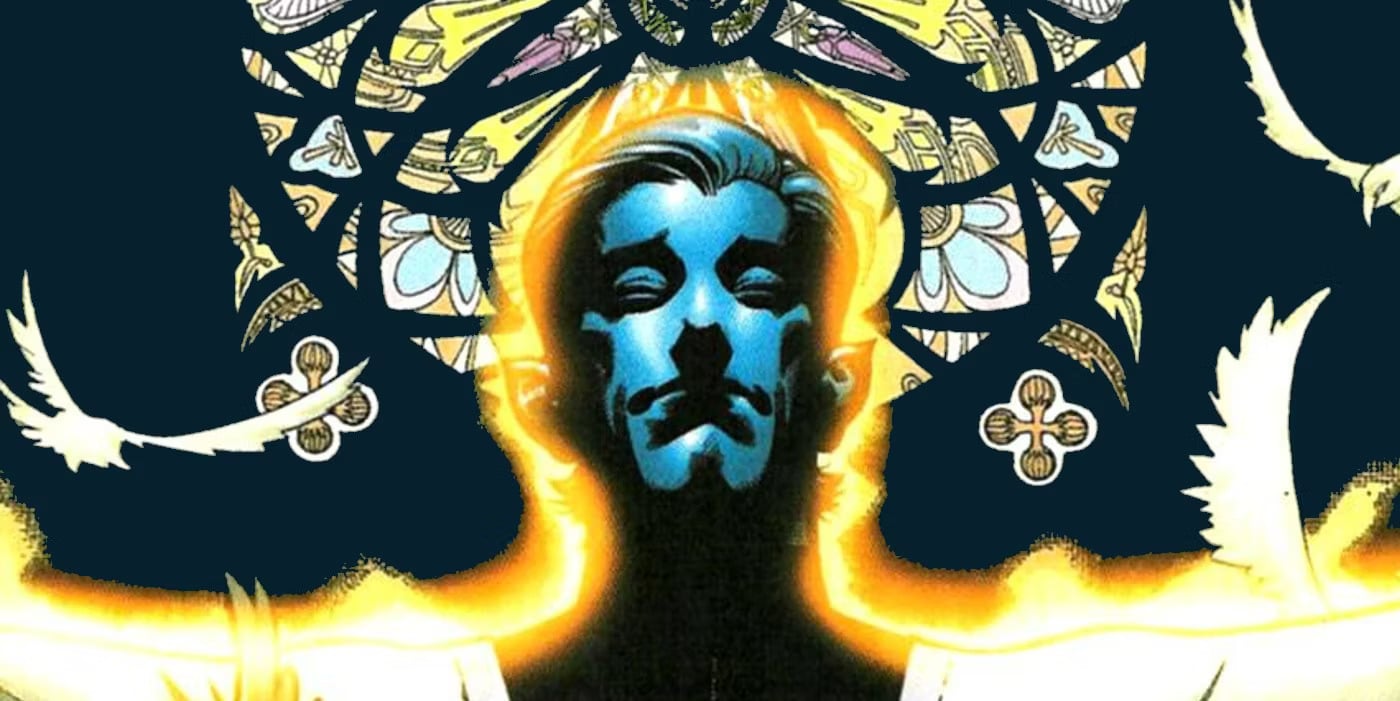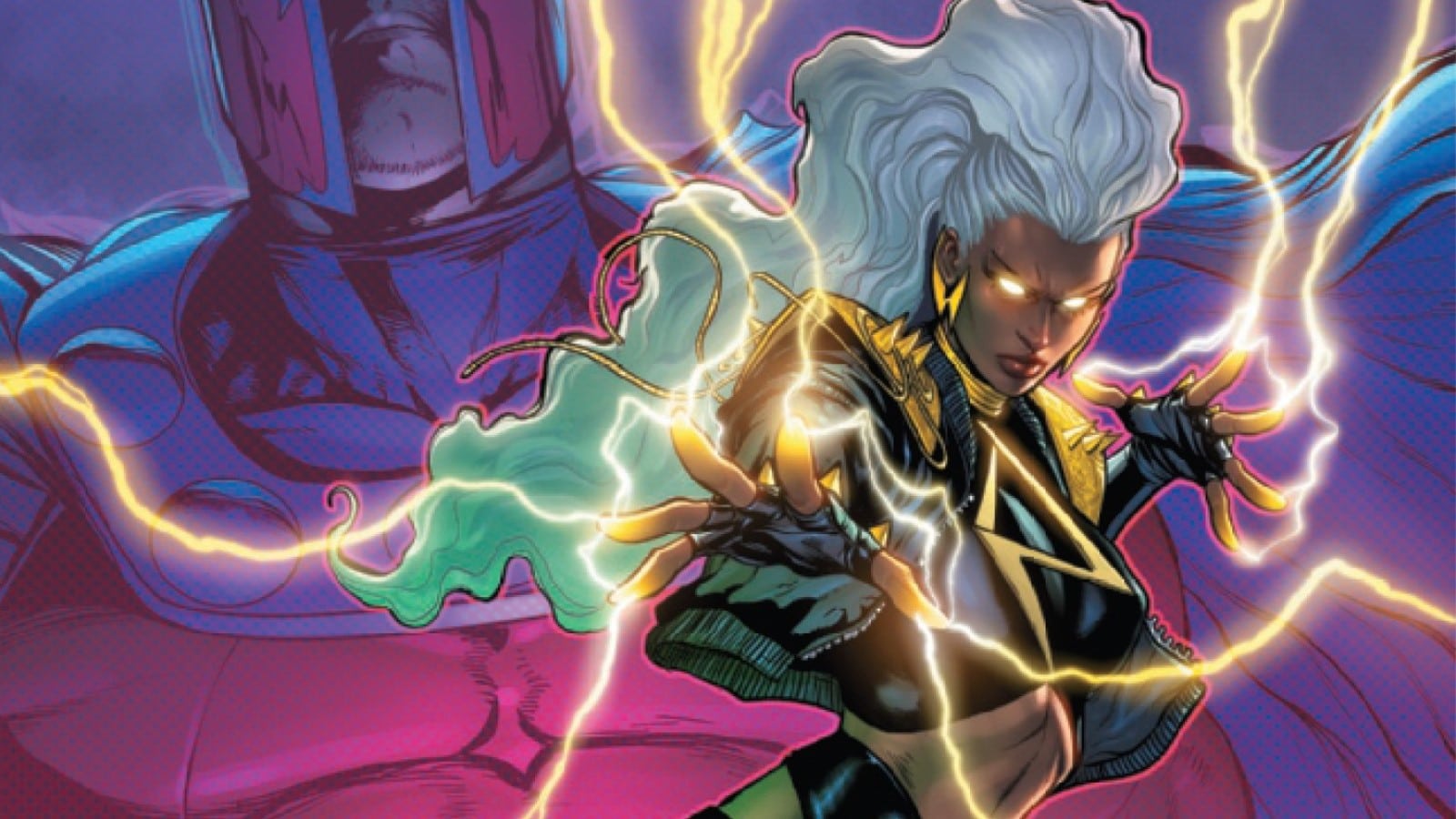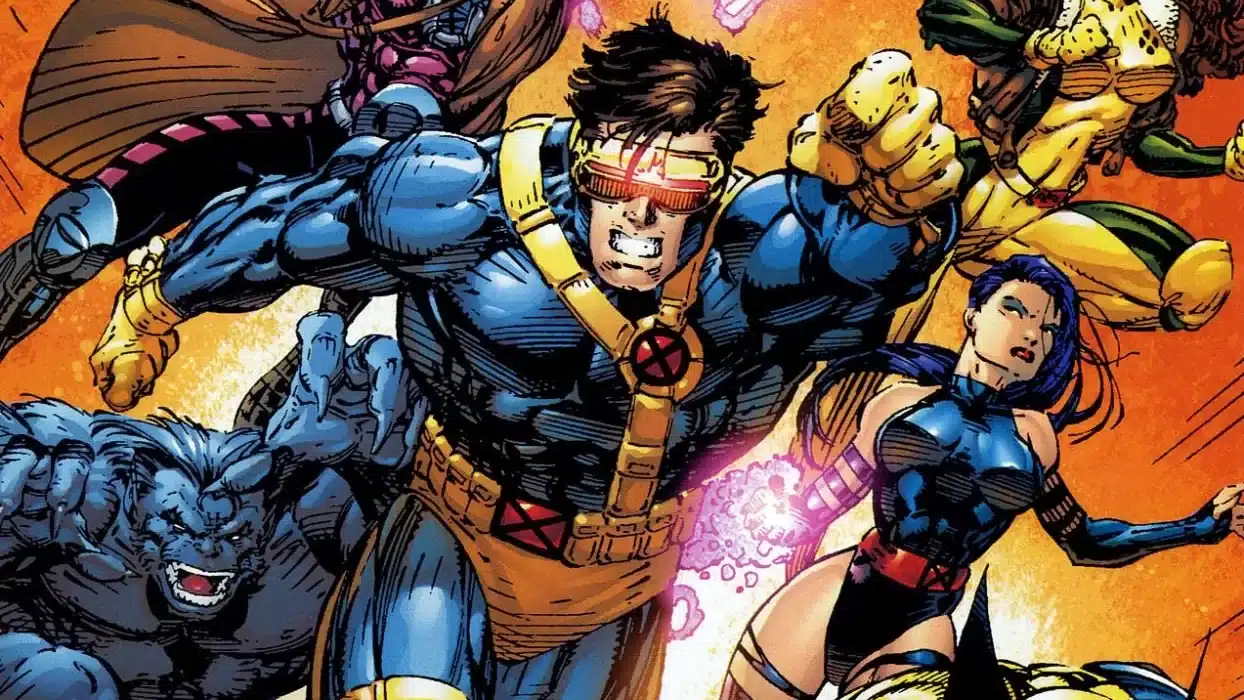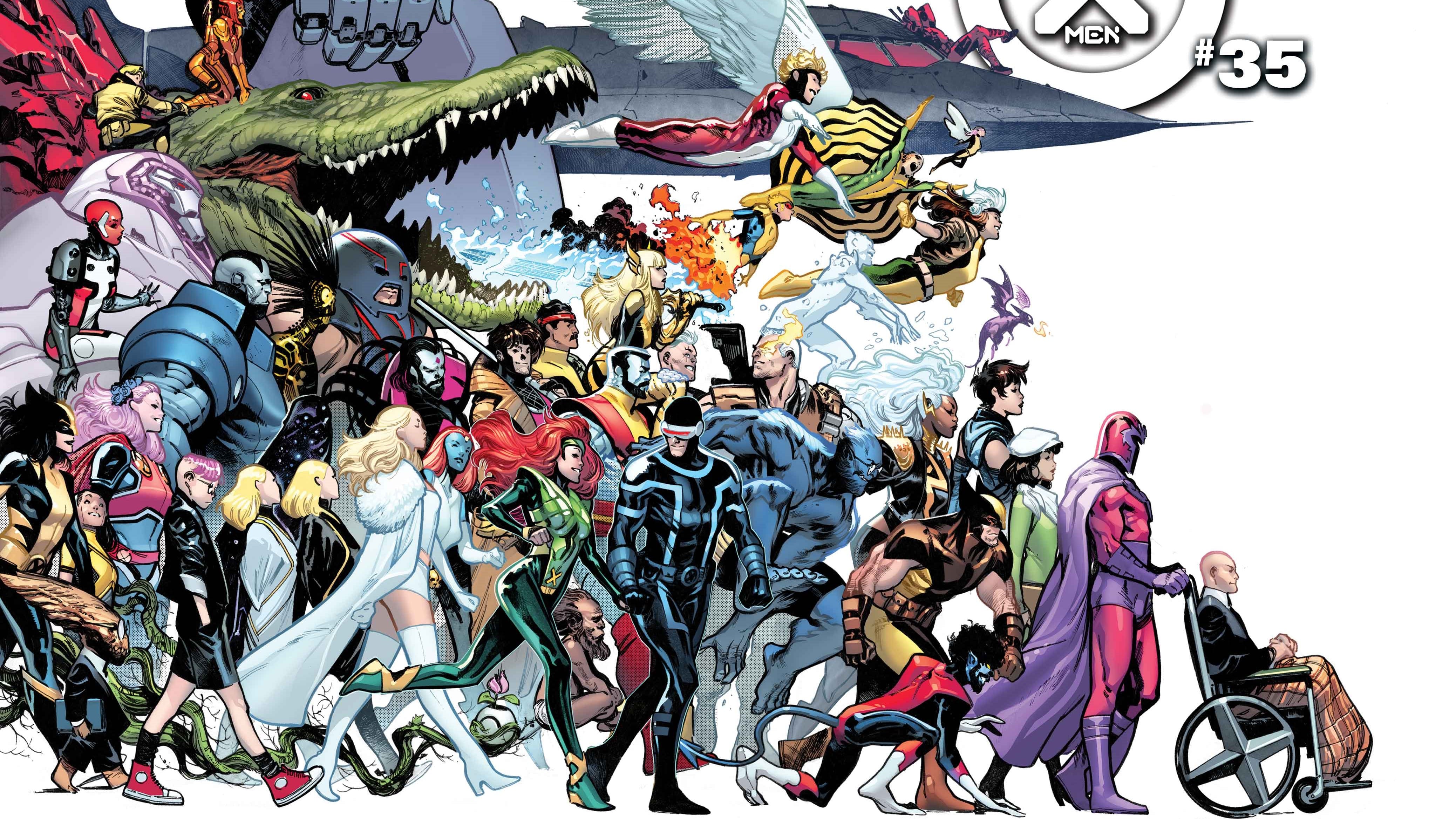That special something, that hidden talent, that wildcard, that X-Factor. It’s that thing you just can’t quite pin down, and it’s as applicable for the colloquialism as it is the X-Men franchise that bears the name. There have been many different squads who go by the moniker X-Factor, and today, we’re going to rank them all, from worst to best.
Honorable Mention: Krakoa Era

The only reason we aren’t ranking this is because it technically hasn’t come out yet. But folks, listen, it’s Leah Williams and David Baldeón from last year’s superb Gwenpool Strikes Back doing a mystery series with a creative cast that promises to explore the mythology of Krakoan resurrection. If you are at all interested in what’s going on in the Dawn of X era, this is going to be the title for you. Plus look at Trevor, he can’t even dress himself. What an amazing dingus.
9. Mutant Civil Rights Task Force

In 2002 Marvel had done the unthinkable, they had turned around the sinking X-Men franchise with Morrison’s New X-Men, and breathed new life into X-Force with Milligan and Allred’s run. They tried their luck again with a new volume of X-Factor but the results were mixed. This four issue mini-series revolved around F.B.I. Agents Kearse and Grey of the Mutant Civil Rights Task Force. They were cops that investigated mutant crime, and guess what! One of them is a little racist.
It’s a compelling, well written story that examines mutants from a human perspective but it’s tiring to read a tale about a person in power having to learn how to not be racist and how to not abuse that power. There’s nothing particularly X-Factor about this so it’s gotta bring up the rear of this list.
8. Regenesis Era

No one has defined X-Factor, for better or worse, than two time GLAAD award winner, unrepentant anti-Romani racist, and tax delinquent, Peter Alan David. His second run on the title lasted from 2006-2013, and by the soft-reset Regenesis provided in 2012, it had gotten long in the tooth. There were already ten members of the cast, including Pip the Troll for some damn reason, and David thought it wise to add two classic members, Havok and Polaris, back to the squad. The next year would consist of David getting so deep into the hell war that he spent years seeding, that he would often forget to give his characters things to do. Just goes to remind you that there can be too much of a good thing.
7. X-Factor Underground

After starting out as a quirky, government sponsored team, X-Factor devolved into trite superhero stories. Bless his heart, Howard Mackie sure tried to make them interesting again. He failed, but he tried. With a discount JoeMad by his side in Jeff Matsuda, Mackie retooled X-Factor into a darker unit. Mystique and Sabretooth starred alongside Alpha Flight’s Wild Child and Shard, a hologram of Bishop’s sister from the future. There were some interesting ideas as their leader Forge transitioned the team from working for the government, to working against them, but no one really remembers this era. It’s better this way.
6. All-New X-Factor

Like Russia in 1991, David’s X-Factor was this old, tired thing unable to be the giant it once was. Also like Russia in 1991, David’s best idea was to add in some sexy capitalism to the mix. All-New X-Factor dared ask the question “what if Google had superheroes?” It didn’t really answer that question with any biting critiques about corporate culture or the toxicity of silicon valley. What it did ask is what is if Warlock (an alien robot) would be jealous about Cypher (a person) boning down with Danger (a different robot). It then asked what a page of Warlock having robot intercourse with full penetration would be like. It burnt bright, it burnt fast, going through twenty issues in its only year of publication, leading David to complain about people trade waiting for a book causing it to be canceled (a claim that seemed to have no basis in reality). He ended the book on a cliffhanger, promising to resolve it in Spider-Man 2099, which he never did.
5. Xavier’s Underground Enforcers

Many people forget about Fixx, Archer, and Greystone. Probably because they were part of a failed attempt to revitalize X-Factor yet again by Howard Mackie, long after people cared. But not I. I shan’t forget about the team who thought Bishop and the XSE were not doing enough so they became an even more hardcore team. I shan’t forget how Fixx was a discount Psylocke. I shan’t forget that Archer stole a murderer’s identity so he could be a good dad to that murderer’s son. And never, shall I ever, forget that Greystone got “temporal insanity” from traveling back to “our” time and then exploded Havok into another dimension. Honestly, I could probably say anything about these folks and all y’all would believe it. They aren’t good, but they are great.
4. The X-Panded X-Factor Investigations

By the time David’s X-Factor decided to renumber at #200, a lot had changed. His cast had ballooned to include such mainstays as Shatterstar, Longshot, and Darwin, only dropping Wolfsbane so she could go do sabbatical with X-Force and eat her dad. While the plotting was only so-so at the time, the book thrived on the character dynamics. Even to this day, the snappy dialogue and heartfelt bonding between the team is a touch-point for many readers and writers. It’s not perfect (just look at everything around Layla Miller) but there’s a reason folks look back at this era of X-Factor fondly.
3. The O5

There’s a reason the Silver Age X-Men title was canceled. The reason was that it was largely bad and the cast was boring. Lucky for them, Chris Claremont made X-Men cool and Marvel rewarded that hard work by undoing his crowning creative achievement behind his back and nearly driving their star writer out of the company. In a story he can’t stop telling, Claremont describes being told by his editor and good friend Louise Simonson that Jean Grey was coming back to life over dinner on a Friday night so Chris couldn’t immediately deliver his resignation since the office was closed all weekend. That’s how controversial the idea of the Original Five X-Men getting their own spin off was.
Now to be clear, Bob Layton’s original idea of having Cyclops leave his wife and infant child to go pretend to be a mutant hunter with his high school friends was a very bad one. But soon, Simonson got the reigns of the book and added a lot of depth to the original X-Men. Events like introducing Apocalypse and the creation of Archangel have ramifications on the franchise to this day. The young cast of Boom Boom and Rictor are franchise mainstays. It was built on a horrible foundation, and was often uneven, but Simonson used X-Factor to carve her name into the franchise.
2. The Goverment Squad

With New Mutants evolving into X-Force and Uncanny X-Men getting an adjectivless spinoff, 1991 was the prime time for change in the X-Line. To join in on the fun, Peter David and artist Larry Stroman came up with a new team of loveable nobodies and revamped X-Factor forever. Val Cooper organized a replacement for the government’s Freedom Force team, shrewdly understanding that Freedom Force’s flaw was trusting known terrorists. Havok led the team in title, Polaris led it in everything else. The mostly blank slates of Strong Guy and Multiple Man added the comic relief while Wolfsbane and Quicksilver filled out the rest of the roster. It really shouldn’t have worked, but David’s dialogue still felt fresh and Stroman’s art stood out from the rest of the line. It might not have been what every testosterone addled teen wanted in 1991, but it holds up damn well today.
1. X-Factor Investigations

I’ve given Peter David a hard time in this article, and he deserves every bit of it, but you cannot discredit his contributions to the X-Factor franchise. X-Factor was essential in providing a ground level view of what was left of the mutant world post M-Day. It mixed well-plotted noir grittiness with Peter David writing his tightest dialogue. The characters had pathos, their relationships felt honest. The first thirty or so issues of the book contain some incredibly well paced writing built around a core team that truly connected with readers. The books became a cult classic with a dedicated fan base that lasts to this day. It’s the bar that all other X-Factor series will be measured by.
Now we all just need to be OK with him never touching the franchise again.
Zachary Jenkins runs ComicsXF and is a co-host on the podcast “Battle of the Atom.” Shocking everyone, he has a full and vibrant life outside of all this.

